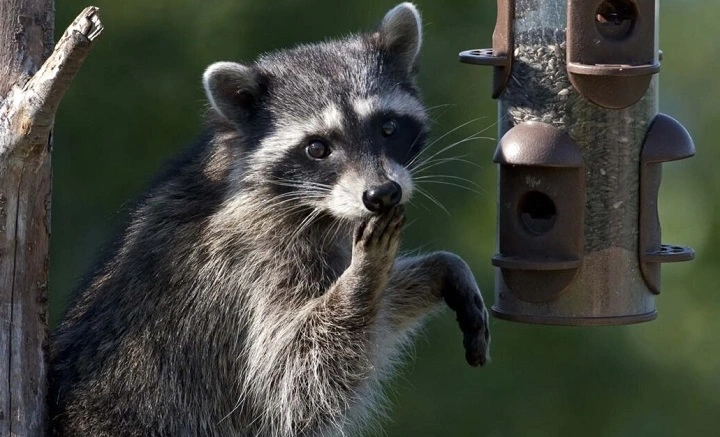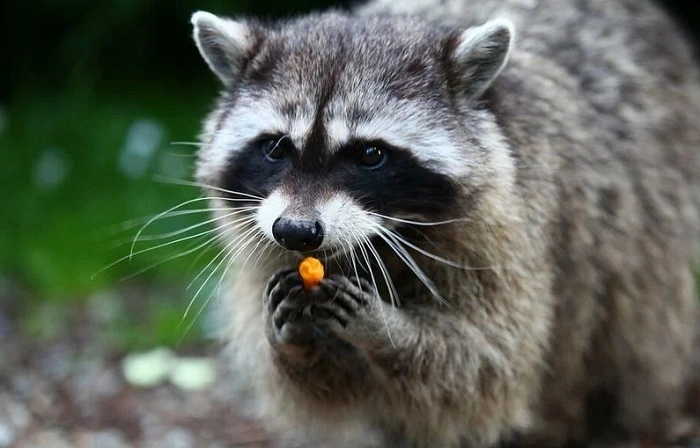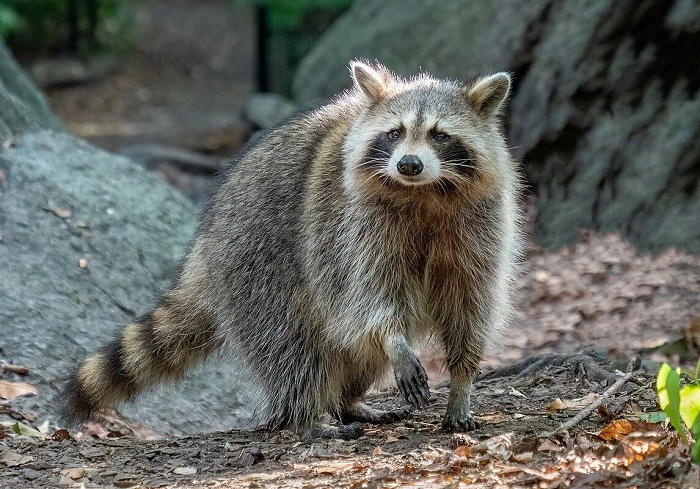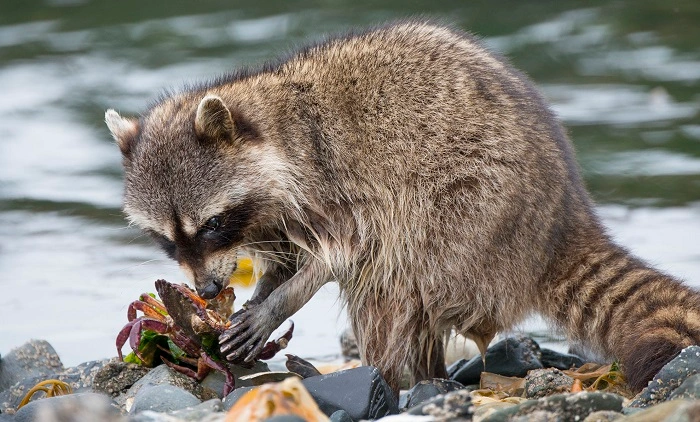Raccoons are clever, curious, and occasionally a nuisance. They tip dumpsters, destroy roofs, and wash their hands with dainty paws. But one huge question on everyone’s minds is: do raccoons eat birds?
The short answer is yes. Raccoons are opportunistic omnivores and will consume nearly anything—plants, fruit, insects, fish, small mammals, and birds from time to time. It isn’t quite that simple, though. Raccoons are opportunistic. They’ll not pursue birds in flight. They’ll take their chance when nests, eggs, or readily accessible birds are within reach.
This is a bird and raccoon guidebook. We’re going to talk about raccoon diets, hunting, backyard bird predators, and nest guarding. You’ll be an expert on raccoon and bird behavior, and an expert in your own yard, when you’re finished reading.
What Do Raccoons Eat?
Raccoons are picky eaters. They live on what they can eat. Their diets include:
- Fruits and nuts.
- Berries and vegetables.
- Insects, worms, and snails.
- Frogs, fish, and turtles.
- Baby birds and eggs.
- Carrion animals (dead animals).
- Human garbage and table leavings.
This adaptability is only one way in which raccoons thrive in forests, suburbs, and even cities. Birds are on the menu but only a slice of an enormously varied menu.
Do Raccoons Eat Birds in the Wild?
Raccoons do eat birds, yes, but not in hawk or fox-like manner. They won’t usually attack adult birds. They go for what’s most exposed:
- Bird eggs – soft, protein, easily reached.
- Baby birds (nestlings) – can’t fly, lousy protection.
- Ground nesters – most easily accessed by ducks, quail, or shorebirds.
Raccoons climb arbors at night to bivouac, scope nests out. They take eggs or chicks using their nimble hands. They raid ground nests at night too.
Do Raccoons Attack Adult Birds?
Now and then. Raccoons have the smarts to kill small adult birds when they catch or wound them. It is not, however, normally possible to catch an aerial well bird. Raccoons are clumsy and fly well enough to pursue like hawks. Raccoons just like to seize an opportunity where birds can’t fly off—roosting trees at night, cages, or nests.
Why Do Raccoons Eat Birds?
The reasons are simple:
- Protein and fat – Birds and eggs contain a high quality source of protein and fat.
- Opportunity – Raccoons won’t overlook a convenient nest.
- Survival – Spring and summer offer a rich supply of eggs and nestlings.
- Adaptability – Raccoons will eat whatever is most accessible.
Bird-eating is opportunistic, not specific.
Birds Most Vulnerable to Raccoons
There are birds more vulnerable than others:
- Ground nesters – Shorebirds, plovers, quail, ducks.
- Colonial nesters – Herons, terns, and colonial seabirds.
- Songbirds – Open-nesting robins, cardinals, and wrens.
- Pet or captive birds – Aviary birds, chickens, and pigeons.
Nests as high up in the trees as possible are still raided because raccoons are good climbers.
The Egg Raiding Habit
Eggs are the perfect bird food for raccoons. They are simple to get, protein-high, and peck-back-free.
Raccoons:
- Crack eggs with their sharp teeth.
- Knock down trees.
- Occasionally scatter ground shells broken up on ground around nests.
Colonies of some birds, especially ground-nesting birds, experience some percentage of colony loss yearly in the form of raccoon egg predation.
How Raccoons Catch Birds
Raccoons are nocturnal predators. At night, they creep through bushes and trees. They use:
- Acute sense of smell – to find nests and eggs.
- Agile hands – to grab eggs or chicks in a moment.
- Climbing skills – to reach tree nests.
- Amongst other predators, patience – they move at their own pace, no hurry.
They are not predators in the traditional application of the term but foragers and scavengers who maximize opportunity.
Raccoons and Backyard Birds
Birders can’t help but resent raccoons inhabiting the backyard. A raccoon will plunder a bird feeder, nick a nest box, or chase songbirds away.
Most typical problems are:
- Raccoons climbing poles to access feeders.
- Raccoons breaking into nest boxes to steal eggs.
- Raccoons raiding chickens or ducks out of back-yard coops.
Back-yard bird protection is essentially raccoon protection.
Keeping Raccoons Out of Birds
If you enjoy birds and raccoons and desire harmony, these are harmless ways to guard against feeders and nests:
Guard bird feeders
- Baffled raccoon-proof poles install.
- Bring feeders in at dusk.
Secure nest boxes
- Slide on metal predator guards.
- Hang boxes 6–8 feet or higher above the ground.
Guard chicken coops
- Lock up overnight.
- Hardware cloth, and not chicken wire (raccoons will rip it apart).
Eliminate attractants
- Avoid outdoor pet food.
- Secure trash cans tightly.
These are habits that discourage raccoons but do not drive them away.
Ecological Role of Raccoons
No matter how much birders may dislike raccoons, they are important to keeping ecosystems in balance:
- They control insects.
- They clean up carcasses.
- They disperse seeds in scat.
- They help keep prey populations in check.
They are constructed to eat birds in the natural order of things, not as a foul vice.
Images of Raccoons and Birds in Culture
Raccoons are trickster creatures in myth—clever, intelligent, and untruthful. Birds, conversely, are symbols for hope and freedom. When birds and raccoons clash with one another in mythologies, it symbolizes the battle of wily opportunists and pure idealists.
Native American mythology has raccoons as trickster characters that also teach by deception at times. Teachers and bearers in turn are birds. Their opposition they face in mythology is what occurs in life.
Scientific Study of Raccoons and Birds
Biologists have discovered that the effect raccoons have on birds is:
- Songbirds – Raccoon destruction of nests is a major chick death factor.
- Shorebirds – Raccoons steal from plovers and tern colonies.
- Waterfowl – Duck eggs are also regularly pillaged by raccoons.
Conservation measures generally maintain raccoon populations in balance at sensitive bird preserves.
Do Raccoons Compete with Other Predators?
Yes. Raccoons are not lone nest predators. They have competition from:
- Snakes.
- Foxes.
- Skunks.
- Opossums.
- Crows.
But raccoons are different because they climb and think. They open lids, flip latches, and get inside where other predators do not.
Birds and Raccoon Risk
| Bird Type | Nesting Style | Raccoon Risk Level | Notes |
| Ducks | Ground nests | High | Daily taken ducklings and eggs |
| Quail | Ground nests | High | Midnight attacked by raccoons climbing up |
| Songbirds | Tree nests | Medium | Raccoons attack eggs by climbing up to nest |
| Chickens | Coops | High | Require strong defenses |
| Herons/Terns | Colonies | High | Raccoons attack bird colonies |
| Pigeons | Roofs/niches | Low-Medium | Safe but not foolproof |
FAQs Regarding Raccoons and Birds
Do raccoons eat adult birds?
Occasionally, but not usually. They raid eggs and nestlings.
Do raccoons climb trees to acquire birds?
Yes. They are excellent climbers and will attack tree nests under cover of darkness.
Will raccoons raid backyard chickens?
Yes, if the coops aren’t secure. Raccoons do hurt chickens.
Do raccoons have much impact on bird populations?
They’re one of the major nest predators, especially for ground-nesting birds.
Can raccoons and birds get along?
Yes, with protection such as locked feeders and roofed nests.
Conclusion
So, then, do raccoons consume birds? Yes, but as a second course. Raccoons are opportunistic omnivores. They’ll consume eggs and chicks but devour adult birds if the circumstances are appropriate for them.
To birders in the backyard, raccoons are nuisance animals. They steal from feeders, nest boxes, and coops. But with clever outwitting protection—such as baffles, predator guards, and secure enclosures—you can protect birds.
In the real world, raccoons aren’t all that bad. It’s a survivor. It takes what it can, and birds are just one of a thousand or so items on its hodgepodge menu. Given this, we can live with raccoons as we do with birds in the scheme of things.
The next time you catch a raccoon smashing into a tree or snuggling with a feeder, keep this in mind—you’re looking at one of nature’s more hardy critters doing what they do best: surviving.





